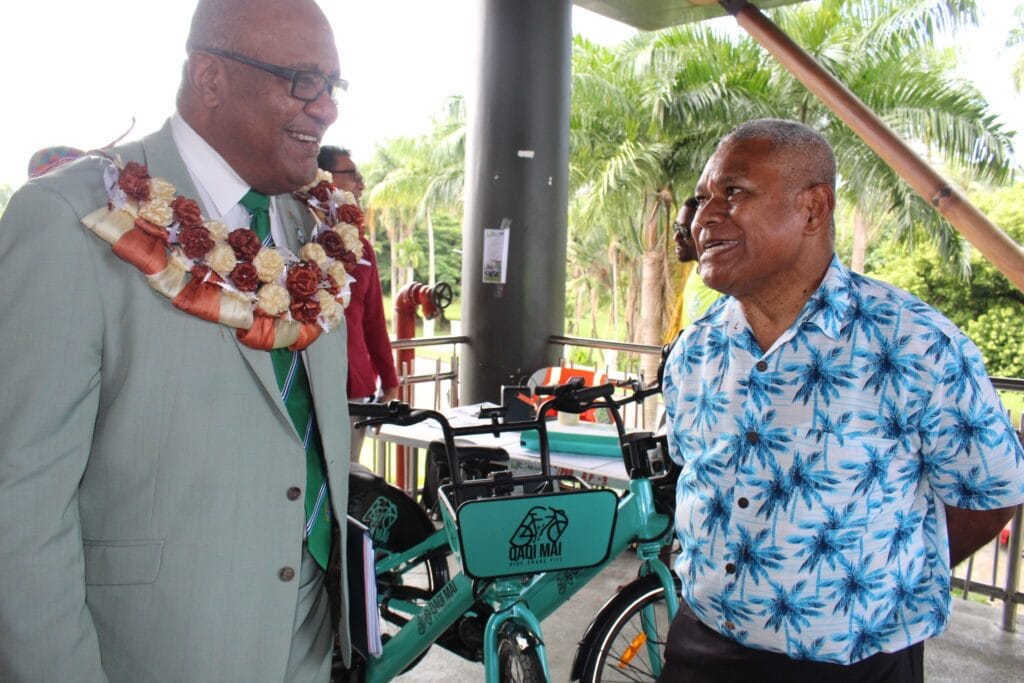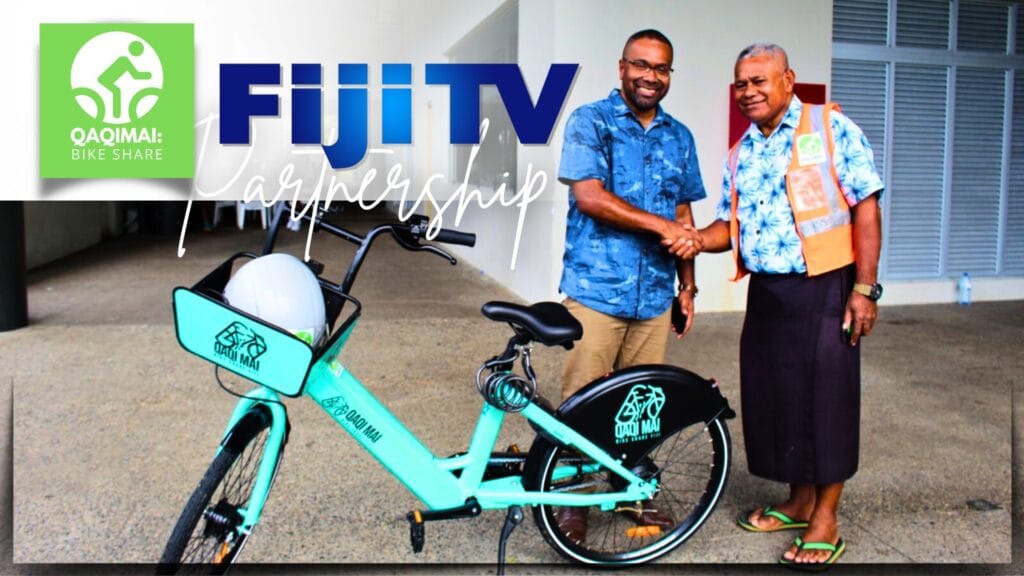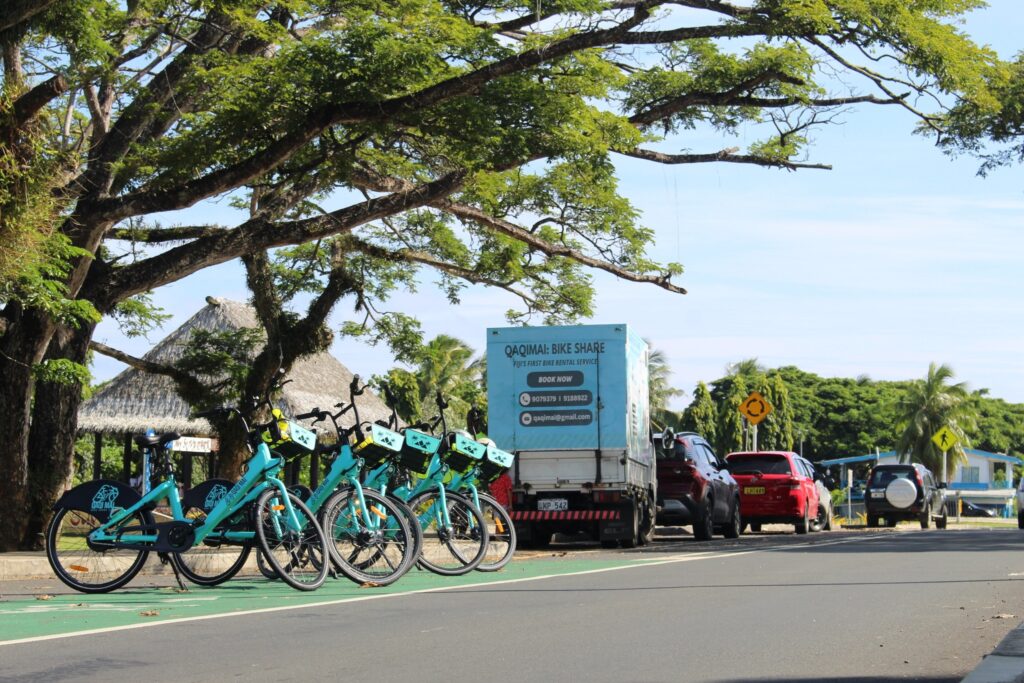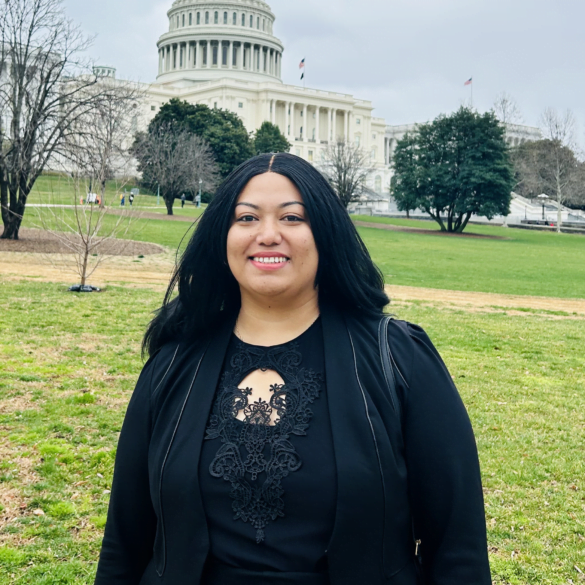In 2019, amidst the daily struggles of long traffic jams in Suva, one man dared to ask a simple yet groundbreaking question: Why can’t Fiji have a bike-sharing system? That man was Eliki Dakuitoga, the founder of Qaqi Mai: Bike Share.
What started as an idea rooted in necessity soon transformed into a movement that would challenge traditional mindsets, disrupt the transport industry, and introduce an innovative, eco-friendly alternative to urban mobility in Fiji. But the road to success was anything but smooth.
The Beginning: A Vision Against All Odds
Eliki, working in Suva at the time, was part of the daily struggle thousands of Fijians faced, leaving home at 4 or 5 a.m. just to beat traffic. What should have been a 15-minute drive often turned into a grueling hours-long commute. Frustrated by the inefficiency, he thought: There has to be a better way.
Bicycles had long been a solution in many parts of the world. Yet, in Fiji, the idea was met with skepticism. He heard it all: “It won’t work.” “E na sega ni rawa.” “Fiji is not ready.” But instead of discouragement, these doubts fueled his determination.
The Challenges: Pushing Through Doubt
The journey to establish Qaqi Mai wasn’t easy. Government officials were hesitant, infrastructure was lacking, and cultural barriers stood in the way. People questioned whether a bike-sharing system could survive in a country where public transportation and personal vehicles dominated the landscape.
Yet, Eliki remained undeterred. He sought out international recognition, and in doing so, he secured Qaqi Mai’s first international award from the UNDP Pacific Office’s Youth Co:Lab program. This was followed by a second award from the GGGI Pacific, which helped secure a loan from the Fiji Development Bank (FDB), a major milestone for a business trying to break new ground.
By 2023, the GEF Small Grants Programme recognized Qaqi Mai with its third international award. This recognition cemented the company’s legitimacy, but the local struggle continued. The Fiji Government had yet to fully embrace the initiative, and skepticism still loomed. However, through persistence, partnerships, and proof of concept, the tides began to turn.



Building an Operational Model for Fiji
Eliki and his team carefully designed their bikes to fit the Pacific context. Their first fleet, the Tavale Fleet, consists of 15 custom-built electric bikes, designed to accommodate Pacific Islanders. Each bike is built with a weight capacity of 150 kg, anti-theft technology, and puncture-proof tires. They also introduced RFID card technology, enabling users to rent bikes seamlessly. While GPS tracking and geofencing are not yet fully developed, they are in the pipeline for future improvements.
Two models were introduced:
- B2B (Business-to-Business): Companies lease bikes for their employees, paying a monthly premium.
- B2C (Business-to-Consumer): Individuals rent bikes for short trips, accessed via Qaqi Mai’s mobile stations.
Despite its modern approach, Qaqi Mai still faced skepticism. Theft was a major concern, but thanks to anti-theft design, these fears were addressed. Payment methods were another challenge, leading to partnerships with Vodafone’s M-PAiSA, F-Post terminals, and card payment options, making bike rentals accessible to all.
Partnership with Siuhuu: Expanding the Vision
Joining Siuhuu, an innovative Pacific marketplace, was a game-changer. Through Siuhuu, locals in Fiji can now book a bike using M-PAiSA or card, while the diaspora and tourists can book for themselves or their loved ones using direct or credit card payments, a revolutionary step in accessibility. Now, someone in Australia or New Zealand can pay for their relatives in Fiji to rent a bike, just like sending mobile credit.
This partnership isn’t just about business; it’s about empowerment. It’s about proving that Pacific Islanders can create complex solutions that fit the Pacific way of doing things. For too long, the mindset has been that only the West or the East can drive technological progress in the region. Ventures like Qaqi Mai and Siuhuu are breaking that narrative, showing that innovation can come from within.
The Bigger Picture: Changing Mindsets
More than just a transport solution, Qaqi Mai is challenging long-held beliefs. The vision for the future is clear: bike lanes at every bus stop, bike-sharing hubs across Fiji, and a shift in mindset from doubt to belief. Qaqi Mai isn’t just a business; it’s a movement.
To budding Pacific entrepreneurs, Eliki’s advice is simple: Dream big. Start small. Just start.



Book Your Ride Today
Qaqi Mai is now live on Siuhuu. You can scan the QR code below to book your bike. Whether you’re in Fiji or overseas, you can book a bike for yourself or a loved one. Be part of the movement toward a cleaner, healthier, and more efficient Fiji.
Follow Qaqi Mai on Facebook and book your ride today through Siuhuu. The revolution is here, and it’s only just beginning.

Related posts
Meet the Founder

Akanesi Kaufusi, also known as Akanesi Tohotoa, a Tongan native, embodies resilience and vision, having transformed her personal challenges into a pioneering business venture. Akanesi moved from Tonga to New Zealand to further her studies, where she earned degrees in Business and Theology. During this period, she faced difficulties locating Pacific Island-owned businesses in her vicinity. This struggle planted the seed for what would become her groundbreaking initiative.
Learn more

